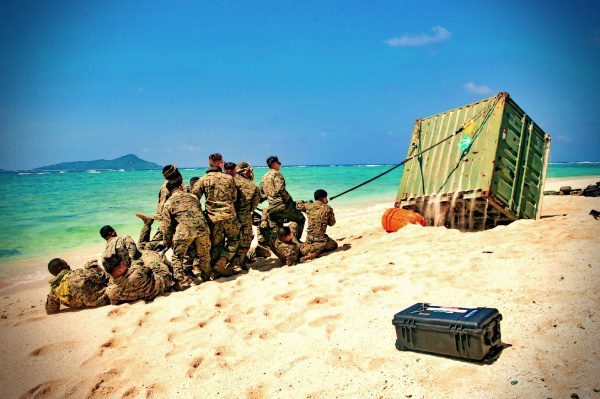Discovery in Military Trials
An expert assistant is someone detailed to the defense team
After trial advocates have framed their problem by identifying the elements at issue in the case and have constructed basic arguments that support their positions on those elements, the advocates need to develop the evidence that supports those arguments.
- Discovery and Expert Assistance under the UCMJ
- Appointment and Production of Expert Assistance
- Appointment and Production of Expert Witnesses
- Defense Discovery Responsibilities and Requests
- Disclosures or notices made upon government request (not based on reciprocity)
- Mandatory disclosure or notice requirements for defense counsel
- Disclosures made upon government requests (based on reciprocity)
- Discovery in the Military Justice system
- Government requests for discovery
- Mandatory disclosure or notice requirements for trial counsel
- Introduction to discovery in the military
- Duty to preserve evidence
- Enforcement
- Regulation of production of witness and evidence under the UCMJ
- Regulation of Discovery
- Protective and modifying orders
- Remedies for Nondisclosure
Before you can find something, you need know what you are looking for.
Develop a plan for finding what you need. Brainstorm. See Albert J. Moore, et al., Trial Advocacy: Inferences, Arguments, and Techniques (1996).
- If my claim is true, what evidence indicates a motive or reason for why my claim is accurate?
- What should we expect to have happened before and after?
- What actually did happen before and after? If my claim is true, what else is likely to have occurred?
- How do people typically act?
- How do institutions typically behave?
- How do mechanical devices operate?
- How do people typically think?
- How do people typically react in emotional situations?
- What is the custom and practice?
- Were less restrictive alternatives available?
- What positive or negative consequences resulted or could have resulted from the conduct?
- What was the person’s physical ability to observe?
- Is there a reason they would or would not have seen the event?
- Is there a reason why they would or would not remember the event?
- Are there internal inconsistencies (if they did this, they would not have done that)?
- Are there external inconsistencies (they said they did this, but someone else says that did not happen)?
- Did the person have the authority to do what they said they did?
- Are there reasons the person would be neutral or biased?
Discovery is just a part of that plan.
“The role of discovery is not just to get your case into or out of court. It’s to find the facts – the human elements – that tell the winning story.” James W. McElhaney, Hunt for the Winning Story, A.B.A. J., July 2006, at 22. The starting point for developing evidence is to apply a liberal amount of elbow grease. If you want it, go get it. If there is an obstacle between you and the evidence that you cannot get around, but the other party can get around the obstacle, then seek discovery. While not discussed in this outline, the Article 32 is an integral part of both party’s discovery plans.

